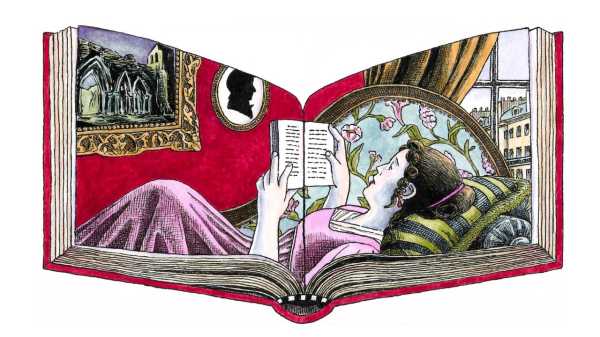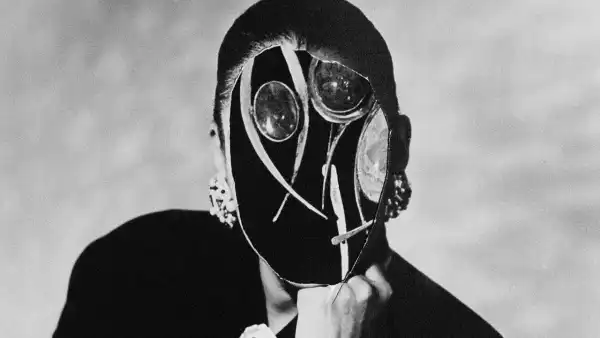
Save this storySave this storySave this storySave this story
“Northanger Abbey” is the least beloved of Jane Austen’s six novels. It also appears frequently in university-level literature classes. These two things are related.
Completed largely in 1798 and 1799, when Austen was in her early twenties, “Northanger” was the first of Austen’s novels to be written but among the last to be published. Austen sold the manuscript in 1803, but the publisher never brought out copies of the book. Ultimately, “Northanger” didn’t appear until 1817, a few months after Austen’s death. Her brother published it along with “Persuasion,” her final novel. This history may suggest something about how unusual and uncategorizable “Northanger” is.
For one thing, it is very much a novel about novels, deriving much of its energy and humor from mocking the tropes of the sentimental novel of the eighteenth century—particularly the convention of endowing protagonists with extraordinary personal qualities and heartrending histories. “No one who had ever seen Catherine Morland in her infancy would have supposed her born to be an heroine,” the book begins. Catherine was, we learn, a plain-looking child—“awkward figure, a sallow skin . . . dark lank hair”—and was neither an orphan nor mistreated by her parents. She was more mischievous than precocious in virtue or genius, for she “never could learn or understand anything before she was taught; and sometimes not even then, for she was often inattentive, and occasionally stupid.” Austen allows that she improved—some—with age, such that, at the time the action of the book takes place, Catherine’s “heart was affectionate”; “her disposition cheerful and open, without conceit or affectation”; and her mind no more “ignorant and uninformed as the female mind at seventeen usually is.” In other words, Catherine is a nice, ordinary middle-class English girl. Perhaps it isn’t surprising, then, that her adventures will be of a more realistic sort than those of earlier and more conventional heroines: many of Catherine’s difficulties are brought on by her own errors in judgment rather than by the villainous machinations of her enemies. “Northanger” is, like all of Austen’s novels, a domestic drama, not a whirlwind romance or a horror story of the sort that Catherine can’t get enough of.
Catherine’s love for books is one of her most striking qualities. The ones she prefers are “all story and no reflection,” from which “nothing like useful knowledge could be gained.” Austen wrote “Northanger” in reaction to the hugely popular and highly sensational gothic novels of Ann Radcliffe and her imitators, books that dominated the circulating libraries of England in the late eighteenth and very early nineteenth centuries. However, Austen’s broader critique of novelistic convention also applies to the much less potboilerish novels of such authors as Frances Burney and Samuel Richardson. Austen admired these writers, but she could likely see that the psychological sophistication of their depictions of human nature was tethered to overheated ideas about what makes a fit hero or heroine, as well as to melodramatic plotlines involving kidnapping schemes, sudden inheritances, unfeeling parents, and mustachioed libertines—the kinds of devices Austen herself would famously eschew.
“Northanger” consists of two plotlines. One is a bildungsroman/marriage plot (that is to say, the bildungsroman culminates, as it typically does for young women in nineteenth-century novels, with marriage, making the novel fall at once into both categories) about a naïve young woman from the country who ventures out into the wider world—in this case, the fashionable resort town of Bath—where she navigates new friendships and romantic entanglements. The other is what we may call, for lack of any other name, a reading plot, in which Catherine, under the influence of her cherished gothic novels, begins to suspect the people around her of being as capable of evil as the villains she has read about.
The reading plot comes to the fore only after Catherine has had sufficient time in Bath to have been invited to visit the familial home of the siblings Eleanor and Henry Tilney, friends she has made there. At the Tilneys’ house, the titular Northanger Abbey, Catherine’s imagination becomes inflamed by the house’s age and size, and by the fact that it was once a functioning abbey, with cloisters; all this puts her in mind of Radcliffe’s historical novels, particularly “The Mysteries of Udolpho,” of which Catherine is especially enamored. She begins to feel herself to be the heroine of such a book, and almost expects to find hidden passageways that lead to secret dungeons containing bloody daggers and crumbling manuscripts that detail the horrors which have taken place there. In this mind-set, Catherine continually misinterprets what she sees, imputing dark deeds to the house’s owner, her friends’ father, General Tilney, based on scant, almost nonexistent evidence.
In fact, General Tilney is, as the reader realizes long before Catherine does, conceited, vain, money-loving, overly concerned with good eating, and a bit tyrannical. But, as unattractive as he is as a character, he is not the gothic villain—capable of murdering or imprisoning women—that Catherine briefly suspects him to be. Catherine’s readiness to see him so negatively surely reflects both her dawning suspicion that he isn’t quite the nice man he pretends to be, when he is trying to court her favor, and the pernicious effects of gothic novels on her youthful imagination.
And yet, despite its somewhat broad satire of the effect of novel-reading on a mind like Catherine’s, “Northanger” is no churlish attack on the novel. It’s not even an attack on the gothic novel. It is, rather, a rebuttal to such critiques, albeit one so elegant, and so conversant in the various arguments against the novel and its readers, that its radicalness has often passed unnoticed.
As Austen well knew, there was a gendered component to the social perception of novels. Echoing the conventional wisdom of her day, even the novel-loving Catherine wonders whether reading novels is an essentially feminine, and therefore frivolous, pursuit. “But you never read novels, I dare say?” she says to Henry Tilney, her intelligent love interest. “Why not?” he asks. She replies, “Because they are not clever enough for you—gentlemen read better books.” To her surprise, however, Henry, channelling Austen, tells her, “The person, be it gentleman or lady, who has not pleasure in a good novel, must be intolerably stupid.” He even confesses to taking escapist pleasure in Radcliffe’s fiction: “ ‘The Mysteries of Udolpho,’ when I had once begun it, I could not lay down again.”
But Austen doesn’t leave the defense of the novel to a male character. In her capacity as narrator, Austen not only unleashes some of the most passionate, if sarcastically heightened, exegeses in praise of the novel ever to be tucked delicately into the pages of one but also takes aim at the kind of casual sexism that undergirds condescension toward the form. Her irritation with those who blithely assume that nonfiction is superior, because it deals in facts and hard subjects such as politics and history, is evident when she writes:
. . . while the abilities of the nine-hundredth abridger of the History of England, or of the man who collects and publishes in a volume some dozen lines of Milton, Pope, and Prior, with a paper from the Spectator, and a chapter from Sterne, are eulogized by a thousand pens—there seems almost a general wish of decrying the capacity and undervaluing the labour of the novelist, and of slighting the performances which have only genius, wit, and taste to recommend them. “I am no novel reader—I seldom look into novels—Do not imagine that I often read novels—It is really very well for a novel.”—Such is the common cant.—“And what are you reading, Miss ——” “Oh! It is only a novel!” replies the young lady, while she lays down her book with affected indifference, or momentary shame.—“It is only Cecilia, or Camilla, or Belinda”; or, in short only some work in which the greatest powers of the mind are displayed, in which the most thorough knowledge of human nature, the happiest delineation of its varieties, the liveliest effusions of wit and humour are conveyed to the world in the best-chosen language.
Austen, though perfectly aware that many silly novels are written—and that many silly tropes appear even in good novels—is far from deriding novels in themselves as silly.
The parts of “Northanger” that are concerned with Catherine’s novel-inspired misapprehensions are there to serve Austen’s larger argumentative purposes, and thus are not entirely natural to the characters themselves. Luckily, however, these portions of the book are relatively short. And the rest of the novel—the part that is pure bildungsroman—is a delight.
Catherine Morland is second only to Elizabeth Bennet in being Austen’s most easily appealing heroine. While she lacks Elizabeth’s wit and confidence, her sweetness and ingenuity make her far easier to like than the snobbish, self-satisfied Emma or “Mansfield Park” ’s mousy and prudish Fanny Price, both of whom tend to challenge readers’ preconceptions and force us to care for, and even admire, them in spite of our biases. But Catherine wins us over the same way she wins over Henry Tilney—with the simple, unself-conscious demonstration of her good nature and sincerity. We feel what Henry feels when, dancing with him at a ball, Catherine observes that Henry’s brother Frederick has asked Catherine’s friend Isabella to dance, an occurrence that confuses Catherine, for she’d previously overheard Frederick say that he had no interest in dancing. Because she herself says only what she means, it doesn’t occur to Catherine that Frederick might merely have been pretending to have no interest in dancing—it was a pose, put on to demonstrate his superiority to the others, and was easily cast aside when he saw Isabella, a fashionable beauty. Catherine ascribes Frederick’s change of heart not to Isabella’s attractiveness but to his kindness—she imagines Frederick saw Isabella sitting by herself and felt sorry for her. This amuses Henry: “How very little trouble it can give you to understand the motive of other people’s actions,” he says.
“Why? What do you mean?”
“With you, it is not, How is such a one likely to be influenced, What is the inducement most likely to act upon such a person’s feelings, age, situation, and probable habits of life considered—but, How should I be influenced, What would be my inducement in acting so and so?”
This exchange culminates in one of the funniest lines of the novel. When Catherine confesses that she doesn’t understand what Henry is getting at, he says that they are thus on very unequal terms, since he understands her perfectly. This doesn’t surprise Catherine at all. Of course he can understand her: “I cannot speak well enough to be unintelligible,” she tells him.
Many of the book’s pleasures derive from watching Catherine’s naïveté play out. It is clear to readers, but not to Catherine, that her friend Isabella is insincere and selfish. Catherine tries again and again to give Isabella the benefit of the doubt, to interpret Isabella’s acts of inconsiderateness in the most forgiving light. This is hallmark Austen—a young person struggling to interpret the world and its inhabitants. Elizabeth Bennet and Emma Woodhouse, as different as they are from each other and from Catherine, have similar tendencies to misread, to rely on first impressions and wishful thinking, and thereby come to mistaken conclusions about the nature of those around them. Catherine, at least, has a better grasp of her own heart—her own feelings—than either of these more confident and overtly clever heroines.
If Catherine can hold her own in comparison with other Austen heroines, then so too can “Northanger” itself, relative to Austen’s other books. It is nearly as perfect in its style, as consistent in its irony, wit, and good sense, and as casually brutal in its skewering of those characters who rather deserve to be, if not skewered, then at least laughed at. Of Mrs. Allen, the friend who brings Catherine to Bath, for example, Austen writes, “She had neither beauty, genius, accomplishment, nor manner. The air of a gentlewoman, a great deal of quiet, inactive good temper, and a trifling turn of mind were all that could account for her being the choice of a sensible, intelligent man like Mr. Allen.” (Mrs. Allen’s singular fixation on clothes—her own and those of others—is one of the book’s recurring sources of humor: no matter what people around her are discussing, Mrs. Allen exposes the sad poverty of her own inner life with spontaneous utterances about gowns and dressmakers and fabric types.) The conceit and self-involvement of Isabella’s brother John is also dispatched effectively, not with aphorism but with his own words. Austen allows him to hang himself. “His conversation, or rather talk, began and ended with himself and his own concerns,” she writes. He told Catherine “of horses which he had bought for a trifle and sold for incredible sums; of racing matches, in which his judgment had infallibly foretold the winner; of shooting parties, in which he had killed more birds (though without having one good shot) than all his companions together; and described to her some famous day’s sport, with the fox-hounds, in which his foresight and skill in directing the dogs had repaired the mistakes of the most experienced huntsman. . . .” Et cetera, et cetera.
With so much in the book’s favor—a style that is trademark Austen, an appealing and ingenuous heroine, an equally appealing love interest in Henry Tilney, and an abundance of sly commentary on “the Novel” that ought to appeal to the kind of people who love Austen, i.e., to novel readers—why is “Northanger” not more appreciated? Why does almost no lover of Austen cite it as his or her favorite? The reason is likely bound up with the same quality that makes the novel so irresistible to those whose job it is to teach the history of the novel to young people.
As a novel about novels, “Northanger” operates differently than Austen’s other books. When we read “Mansfield” or “Emma,” we interpret the world through the perspective of their heroines. We feel Fanny Price’s unease when she perceives her cousin Edmund’s feelings for Mary Crawford; we are made to feel Mary’s charm, to respond to her liveliness and good humor, even as we, like Fanny, see Mary’s unsuitableness to be Edmund’s wife. Our hands are as tied as Fanny’s when it comes to the question of what to do about it; whether we like Fanny or not, we are right there with her—her ride is our ride. Likewise, when we read “Emma,” we fall prey to the same misreadings as Emma. Having been made to see the world through her eyes, we, too, think Mr. Elton is in love with Harriet Smith; we, too, are shocked to find out that this is not so. In contrast, when we read “Northanger Abbey,” we don’t see the world through Catherine’s eyes; rather, we see Catherine through the narrator’s eye. That is, Austen isn’t merely talking to the reader about novels—she is also talking to the reader about Catherine, who is both character and device, designed to send up other heroines and showcase different kinds of folly.
Consider, for example, the way Austen gives us Catherine’s mood after her first ball: “in her own hearing, two gentlemen pronounced her to be a very pretty girl. Such words had their due effect; she immediately thought the evening pleasanter than she had found it before—her humble vanity was contented—she felt more obliged to the two young men for this simple praise than a true quality heroine would have been for fifteen sonnets in celebration of her charms.” As relatable as this is, and as endearing, it is not the kind of passage designed to make the reader feel Catherine’s happiness with her. Instead of perceiving the world as she does, we see what is happening from without: while we are glad for Catherine that her “humble vanity” has been gratified, we view her in this moment primarily as a foil, a contrast to the impossibly beautiful heroines of books past.
Or watch how Austen introduces a characteristically overwrought exchange between Catherine and Isabella, the sarcasm with which Austen tells us in advance what we are to make of it: “The following conversation, which took place between the two friends in the pump-room one morning, after an acquaintance of eight or nine days, is given as a specimen of their very warm attachment, and of the delicacy, discretion, originality of thought, and literary taste which marked the reasonableness of that attachment.” As satire on the silliness of a certain kind of fast friendship between young women, this may be justified, but such a description is not designed to make us feel for Isabella the affection Catherine does, to be taken in along with her. On the contrary—we are aligned with the narrator, in on the joke.
“Northanger” ’s pleasures come not from the novel’s traditional method of inhabiting the mind of a character but from something more removed. Instead of causing us to become Catherine, Austen engages us in a conversation about Catherine. Since Austen’s observations are dry and ironic and sensible and compelling, this makes for very pleasant conversation, but it still leads to a more cerebral reading experience than we are accustomed to when we read fiction, particularly Austen’s fiction. Thus, the very quality that makes “Northanger” catnip for academics—its eloquence on the topic of “the Novel”—also makes it less of a novel qua novel than Austen’s other books.
But that doesn’t mean “Northanger” doesn’t deserve to be more appreciated. It does. For one, Austen’s full-throated defense of “the Novel” is not only charming but rousing, especially since Austen, unlike a contemporary writer, was unlikely in her era to be cheered for calling out casual sexism and unconscious bias. Moreover, even without allowing us to fully inhabit Catherine’s point of view, “Northanger” is a joy to read. Lighter in tone than Austen’s later novels, it is at once youthful in spirit and sophisticated in technique. That is to say, whatever its built-in limitations, it doesn’t read like an apprentice novel.
The book’s circuitous path to publication is at least part of the reason for this. Because “Northanger” wasn’t published until just after Austen’s death—almost two decades after she finished it—she was able to go back to the manuscript, to polish and refine it. As a result, “Northanger” is that rarest of rarities: an exuberant first novel that, sentence by sentence, and in moral tone, is simultaneously the work of an artist in full command of her powers. ♦
This is drawn from the introduction to a new edition of “Northanger Abbey.”
Sourse: newyorker.com







